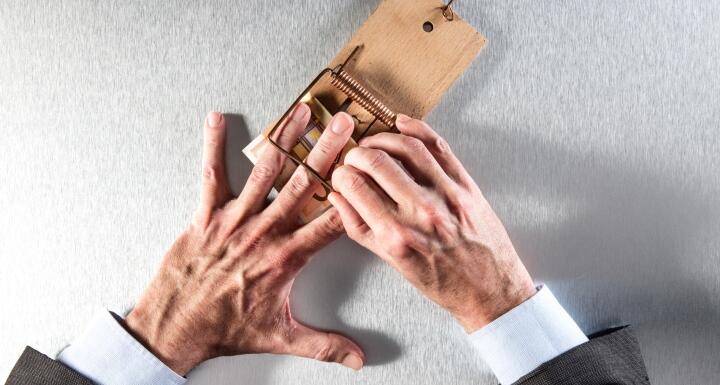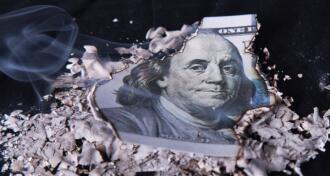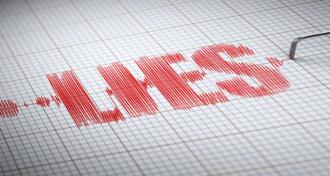When your customer is in bankruptcy, there are two major no-nos that you must remember.
First, don't violate the automatic stay, which prevents a creditor from attempting to collect a debt while the debtor is in bankruptcy unless the creditor gets prior court approval. Second, don't violate the discharge injunction, which absolves a debtor of liability for those debts covered by the bankruptcy court's discharge order. The automatic stay takes effect when the debtor files bankruptcy, while the discharge injunction typically comes at the end of the case.
The United States Supreme Court recently decided a case involving the discharge injunction. In Taggart v. Lorenzen, the issue was the legal standard for holding a creditor in civil contempt when the creditor violates the bankruptcy discharge order. In a unanimous decision, the Supreme Court held that a court may hold a creditor in civil contempt for violating a discharge order if there is no fair ground of doubt as to whether the order barred the creditor’s conduct. In other words, civil contempt may be appropriate if there is no objectively reasonable basis for concluding that the creditor’s conduct might be lawful.
Bradley Taggart was a part owner of an Oregon company called Sherwood Park Business Center. He got into a dispute with some of the other owners, and they sued him in state court for breach of Sherwood's operating agreement. During the lawsuit, Taggart filed a Chapter 7 bankruptcy. In Chapter 7, a debtor discharges his debts by liquidating assets to pay creditors. Taggart ultimately obtained a discharge. After the bankruptcy court entered the discharge order, the parties returned to the state court lawsuit. The parties who had sued Taggart before he filed bankruptcy obtained an order from the state court requiring him to pay post-bankruptcy attorneys' fees of $45,000.00. Taggart contended this debt had been discharged and the parties' actions violated his bankruptcy discharge.
Multiple appellate courts reached different conclusions as to whether – and why or why not – the parties had violated the discharge order. One issue the courts struggled with was the standard to apply to the parties' conduct. Should the courts apply an objective test based solely on their conduct or should they consider their subjective beliefs and motivations? Should the courts impose strict liability for discharge violations or should they let creditors off the hook if they didn't realize their conduct was improper? The Supreme Court agreed to resolve these questions.
In adopting the "no fair ground of doubt" standard, the Supreme Court noted that civil contempt is a severe remedy and basic fairness requires those enjoined know what conduct is outlawed before being held in contempt. The standard is generally an objective one. A party’s subjective belief he was complying with an order ordinarily will not insulate him from civil contempt if that belief was objectively unreasonable. Bad faith conduct, and repeated or persistent violations can warrant civil contempt. Good faith can mitigate against contempt and factor into the appropriate remedy.
Although a discharge order often has little detail, the Supreme Court pointed out that, under the Bankruptcy Code, all debts are discharged unless they are a debt listed as exempt from discharge under Section 523. A domestic support obligation, for instance, is exempt from discharge. (This recent article discusses how debts involving intentional, fraud-like conduct may be exempted from discharge.) In other words, ignorance of the bankruptcy law is no excuse.
In adopting the "no fair ground of doubt standard," the Supreme Court rejected two other standards, one more lenient and one more harsh. First, the Supreme Court rejected a pure "good faith" test – a creditor's good faith belief that its actions did not violate the discharge would absolve it of contempt. Second, the Supreme Court rejected a strict liability test – if a creditor violated the discharge, he would be in contempt regardless of his subjective beliefs about the scope of the discharge order or whether there was a reasonable basis for concluding that his conduct did not violate the discharge order.
The discharge injunction is no joke, and creditors violate it at their peril. A debtor can be compensated for damages resulting from a discharge violation. In this case, the bankruptcy court initially awarded Taggart over $100,000 for attorneys' fees, emotional distress, and punitive damages. Creditors with customers in bankruptcy, or who have filed bankruptcy in the past, should consult counsel who can advise them on what debts they can pursue. And if a creditor finds itself accused of violating the discharge injunction, it should contact counsel to assess its chances of passing or failing the "no fair ground of doubt" test.








